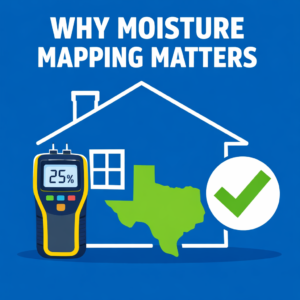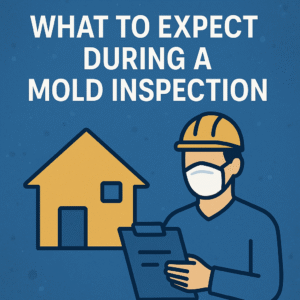Why Texas’ Recent Mold Law Change Matters – And Why Clear Definitions Are Critical
In June 2025, the Texas Legislature passed Senate Bill 1255, amending the state’s mold law (Texas Occupations Code, Chapter 1958). This bill goes into effect on September 1, 2025, and makes several important changes that affect homeowners, contractors, and licensed mold professionals across the state.
Among the most notable changes:
Removal of mycotoxins from the statutory definition of “mold.”
Exemptions for demolition work following a fire or disaster, where mold licensing requirements may no longer apply.
Changes to employee licensing requirements, meaning individuals can no longer perform regulated mold activities under a license holder without holding their own license.
Why These Changes Matter
At NTX Enviro, our mission is to protect homeowners and property owners through independent inspections and unbiased results. While legislation like SB 1255 is intended to streamline the regulatory framework, vague or undefined terms in the law can lead to confusion, loopholes, and unintended risks.
Specifically, the statute now references activities like the “demolition of a structure” after a “disaster.” But the law does not define:
What qualifies as a structure? Does this mean an entire building, or can it apply to interior walls and sections of a property?
What level of work counts as demolition? Is it total tear-down, or does it also cover gutting water-damaged materials inside a home?
What events are considered a disaster? Only those declared under the Texas Disaster Act of 1975, or also smaller events like a burst pipe or localized fire?
Without clarity, contractors could interpret these terms broadly to bypass the use of licensed Mold Assessment Consultants (MACs). That could lead to cross-contamination, incomplete cleanups, and serious long-term issues for homeowners, not to mention problems when selling a home without a proper Certificate of Mold Damage Remediation (CMDR).
Why Homeowners Should Care
Future property transactions: A CMDR protects you during resale by documenting that mold was properly handled under state rules. Without it, sellers could face disclosure problems and buyers could walk away.
Health and safety: Poorly managed demolition after water damage can spread mold spores throughout the home, putting families at risk.
Accountability: Licensed professionals are required to follow established standards (IICRC S520, ASTM D7338, etc.), while unlicensed contractors may cut corners.
What You Can Do
The Texas Department of Licensing & Regulation (TDLR) is currently reviewing these changes and will be adopting rules to implement them. This is the time to make your voice heard.
We encourage property owners, contractors, and concerned citizens to contact TDLR and request clear definitions of:
“Structure”
“Demolition”
“Disaster”
Doing so will help ensure that the new law protects Texans the way it was intended without leaving dangerous gaps that put property owners at risk.
📌 How to Comment:
Email public.comments@tdlr.texas.gov with your input (reference SB 1255 / Mold Program Rule Review).
Submit comments before the close of the current rule review period (September 15, 2025).
NTX Enviro’s Commitment
We will continue to track these developments and advocate for strong, clear rules that protect homeowners and ensure a level playing field for licensed professionals. In the meantime, if you have questions about how this change may affect your project, or if you’re concerned about whether your mold issue qualifies under the new exemption, contact NTX Enviro for an independent assessment.


